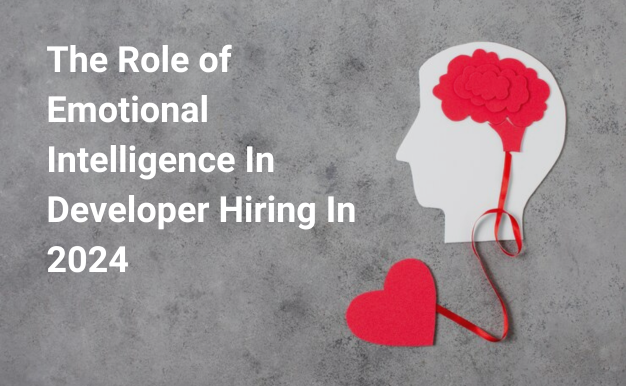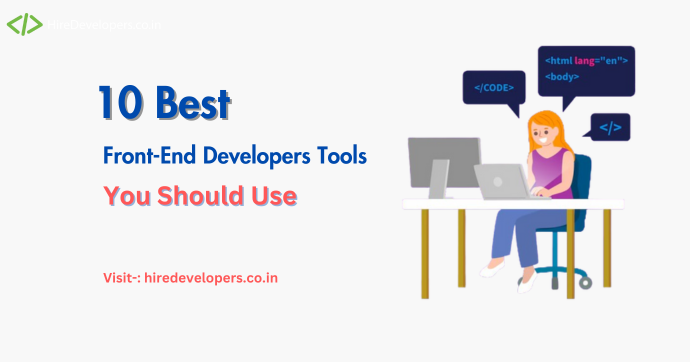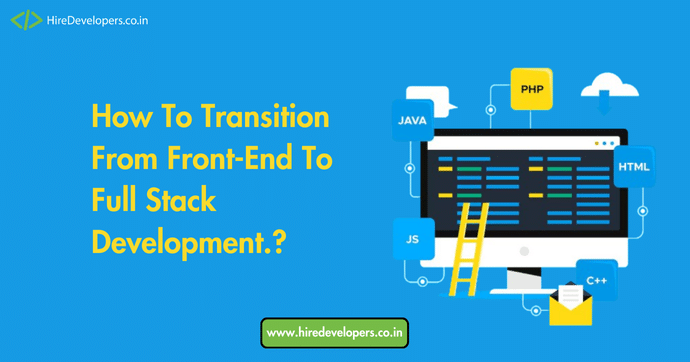December 1, 2024
The Role of Emotional Intelligence In Developer Hiring In 2024

Finding the right developer can feel like searching for a unicorn. Sure, technical skills are crucial, but in today’s fast-paced and collaborative development landscape, there’s another essential quality that’s often overlooked: emotional intelligence (EQ).
Think of EQ as the superpower that helps developers navigate complex projects, collaborate effectively, and thrive under pressure. It’s not just about writing elegant code; it’s about understanding people, communicating clearly, and building strong relationships with teammates.
Why is EQ Such a Game-Changer in Developer Hiring?
The Benefits of hire a developer with High EQ
Teamwork Makes the Dream Work:
Software development is rarely a one-man show. Developers need to collaborate effectively with designers, project managers, and other developers. Someone with high EQ can easily adapt to different personalities, actively listen to feedback, and communicate ideas clearly, ensuring a smooth and productive workflow.
Conflict Resolution: Calming the Coding Storm:
Disagreements and technical challenges are inevitable in any development project. A developer with high EQ can approach these situations with empathy and problem-solving skills. They can mediate discussions, find common ground, and work towards solutions that benefit the entire project.
Building Trust and Transparency:
Strong communication is key to building trust within a team. A hiring software developer with high EQ can clearly articulate technical concepts to non-technical stakeholders, keeping everyone informed and aligned with project goals. This fosters a sense of trust and transparency, crucial for a successful development process.
GET IN TOUCH
Schedule a Call
How To Spot a Developer With High Emotional Intelligence?
Here are some ways to assess a developer’s EQ during the hiring process:
Behavioural Interview Questions:
Go beyond technical skills and ask questions that reveal how the candidate has handled challenging situations in the past. For example, “Tell me about a time you disagreed with a teammate’s approach. How did you resolve the issue?” Their replies can offer important insights into their abilities in communication and conflict resolution.
Teamwork Scenarios:
Present the candidate with hypothetical teamwork challenges and observe how they collaborate with others. Do they listen actively? Do they share ideas constructively? Do they take ownership of their work and support their teammates?
What is Emotional Intelligence (EQ) and Why Does it Matter in Recruiting?
EQ refers to your ability to understand, manage, and express your own emotions, while also recognizing and responding thoughtfully to the emotions of others. In the fast-paced world of recruitment, strong EQ can be your secret weapon for building lasting relationships with candidates, fostering trust, and ultimately attracting top talent to your company.
Here’s how mastering EQ can transform your recruiting game:
Reading Between the Lines:
Candidates might not always explicitly express their anxieties or concerns during an interview. By being emotionally intelligent, you can pick up on subtle cues in their body language or tone of voice, allowing you to address their unspoken worries and create a more comfortable interview experience.
Empathy: Walking a Mile in Their Shoes:
Put yourself in the candidate’s shoes. Imagine the stress of a job search, the uncertainty of interviews, and the hope for a new opportunity. By approaching each interaction with empathy, you can show genuine interest in their career aspirations and build a rapport that goes beyond just filling a position.
Active Listening: Truly Hearing What’s Being Said:
Don’t simply hear to reply; truly listen to understand. This means giving the candidate your full attention, avoiding interruptions, and asking clarifying questions to ensure you grasp the full picture of their skills, experiences, and career goals.
Clear and Transparent Communication:
It’s not just the message that matters, but how you deliver it. Delivering feedback, good or bad, in a clear and respectful manner shows professionalism and builds trust. Even if a candidate isn’t the perfect fit, leave a positive impression by clearly explaining your decision and offering honest feedback.
Building Bridges, Not Walls:
Candidates are potential brand ambassadors for your company, even if they don’t get hired. By maintaining a positive connection, even after an interview, you create a network of talented individuals who might be a good fit for future openings or refer other qualified candidates.
Read More-: Strategies For Hiring Developers
Tips for Recruiters
- Practice Active Listening: Pay attention to nonverbal cues, make eye contact, and ask open-ended questions that encourage conversation.
- Show Empathy: Acknowledge their emotions and anxieties, and let them know you understand the challenges of the job search.
- Maintain Clear and Honest Communication: Be upfront about expectations and deadlines, and provide constructive feedback after interviews.
- Be Enthusiastic and Positive: Your energy is contagious! Show genuine excitement about your company culture and the role you’re offering.
- Follow Through on Your Commitments: If you say you’ll get back to a candidate, do it!
Building strong relationships with candidates isn’t just about filling positions, it’s about building a positive reputation for your company. By honing your emotional intelligence, you can transform your recruiting approach, attract top talent, and create a win-win situation for both your company and the candidates you meet.
Wrapping-up
So, the next time you’re on the hunt for a developer, remember: it’s not just about the code they write, it’s also about the person behind the keyboard. By prioritizing both technical skills and emotional intelligence, you’ll be setting your development team (and your project) up for success.





